RENOVA is helping to reduce CO2 emissions by generating green power through its renewable energy power generation business.
At the same time, it is necessary to pay attention to the impact on the surrounding environment, flora and fauna that occurs when constructing and operating renewable energy power plants.
By minimizing this impact as much as possible, we aim to actualize renewable energy with a lower environmental impact, and contribute to the never-ending symbiosis between humanity and the Earth.
Environmental Initiatives
To contribute towards a sustainable society and planet
-
Environmental Conservation and Biodiversity in Design and Construction
RENOVA builds power plants based on the idea that it is using the blessings of local nature to generate electric power.
When building solar power plants, we design them to make the most of the natural surroundings and topography of the land as much as possible.
For example, when constructing on the slopes of mountains such as the Karumai West and East Solar Power Plants, instead of large-scale earthworks such as carving out mountains in order to efficiently arrange panels and prioritize power generation efficiency, we focus on environmental conservation, reduce the scale of earthworks, and design and construct solar power plants taking advantage of the original natural surroundings and topography.
We also take care to minimize the impact on rare flora and fauna living in the areas around power plant sites.
At the Yokkaichi Solar Power Plant, RENOVA installed a biotope adjacent to the power plant in order to protect rare animals and plants living in the area.
We have continued to work with people in the local community to transplant plants and maintain the ecosystem.
In the case of the Sendai Gamo Biomass Power Plant, there are rare animals and plants living in the nearby Gamo tidal flats. We deepened our understanding of local ecology through dialogue with local residents and experts and by conducting environmental impact assessments, and considered measures to contribute to biodiversity from the design stage.
As a result, we have created planting sites within the power plant site that utilize the vegetation of native and local species that inhabit the Gamo tidal flats.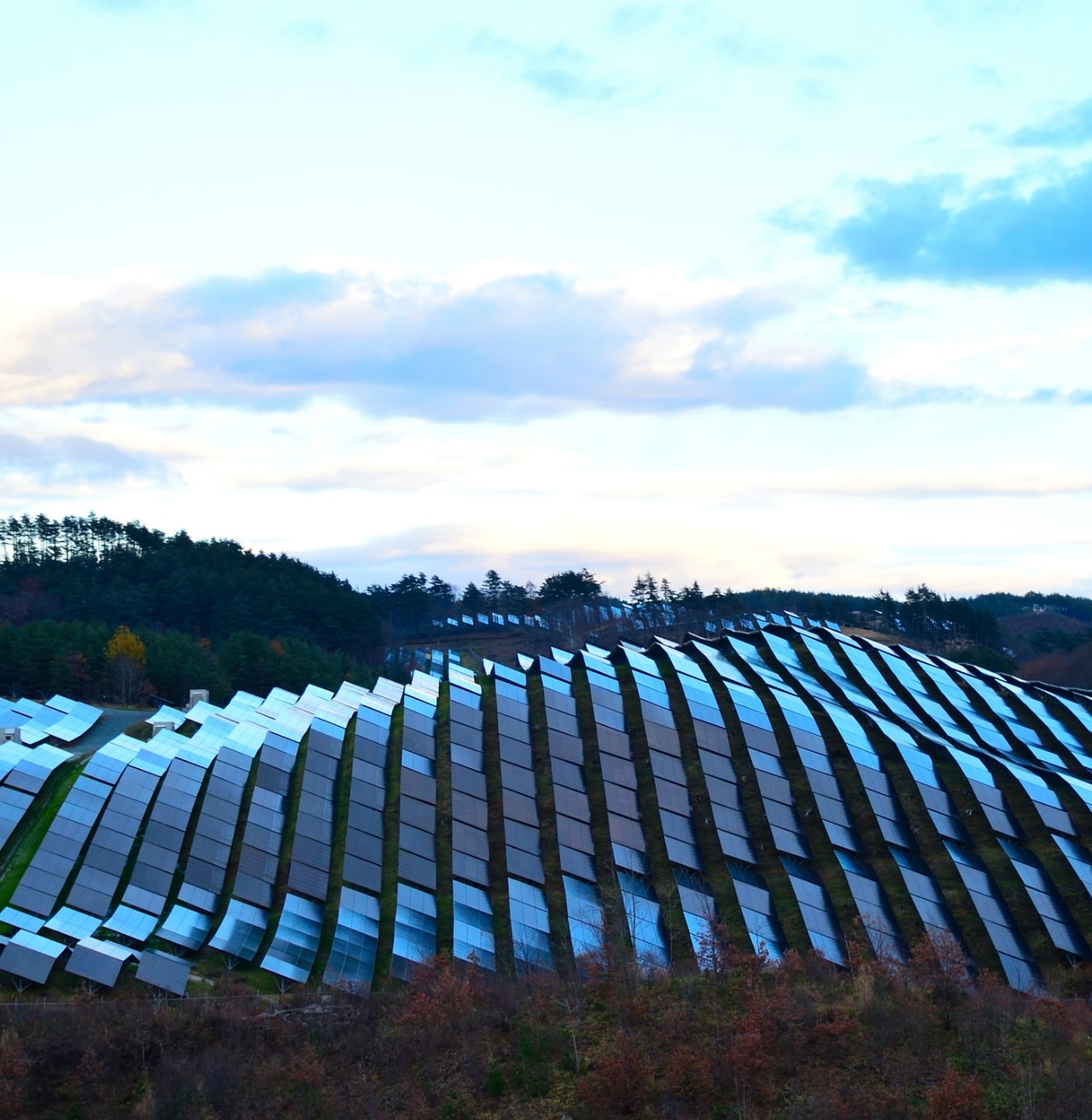
Solar panels utilizing the existing topography
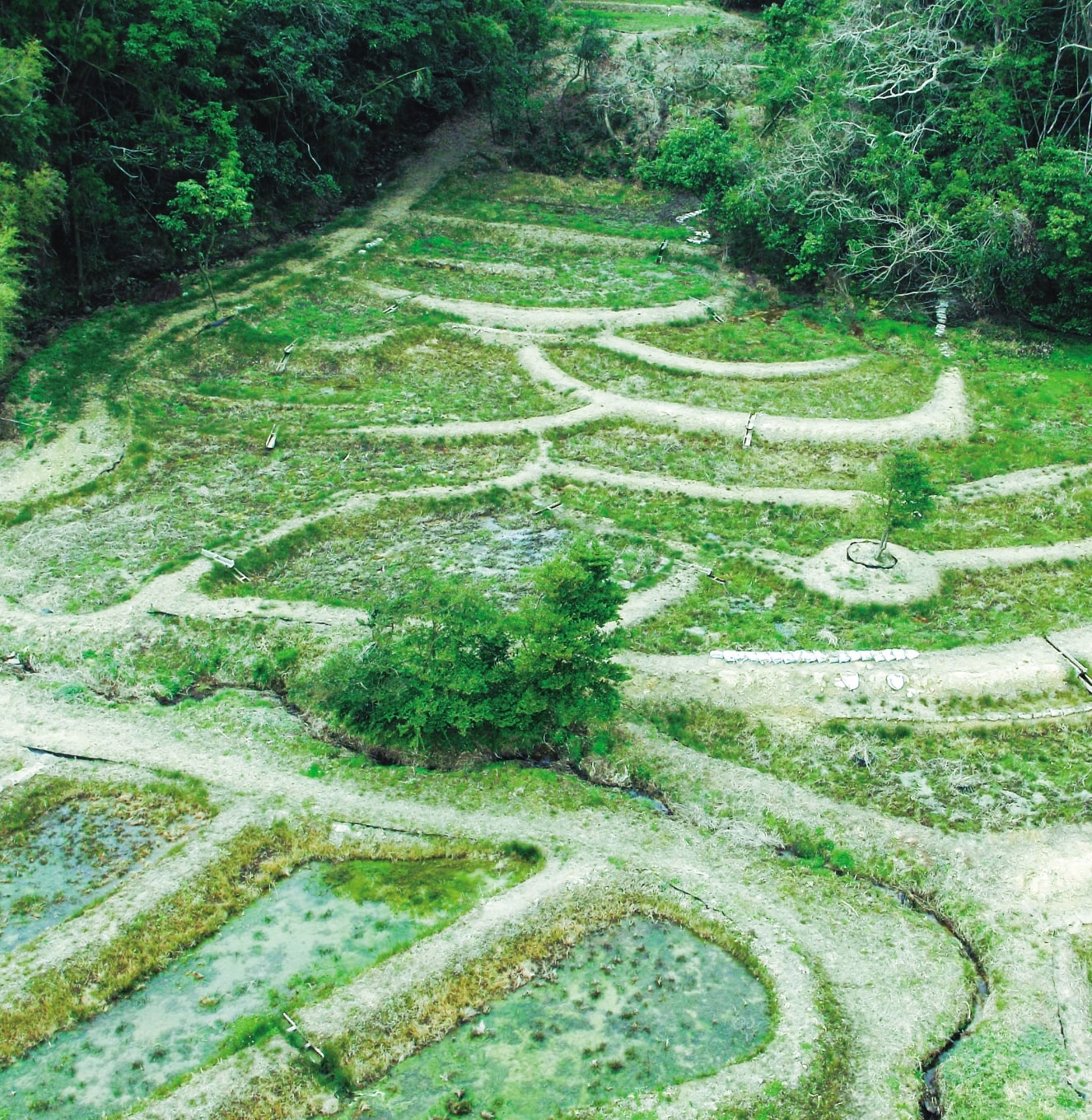
Biotope to protect rare species
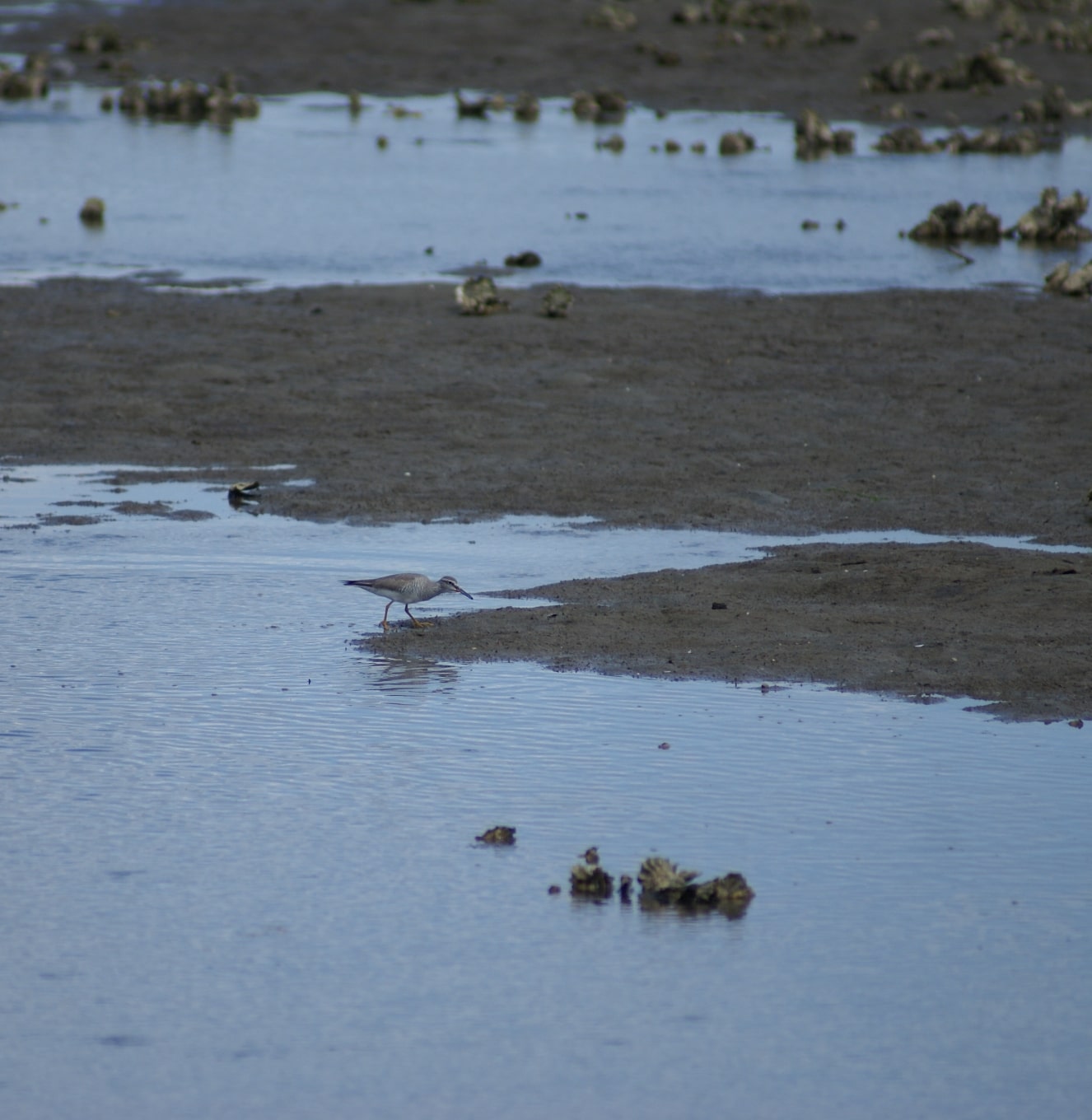
Gamo tidal flats living rare species
-
Safe Emissions
Biomass power generation is a method of power generation that generates fewer harmful substances during combustion than using fossil fuels.
In the operation of our biomass power generation business, we design and construct air pollution control devices that clear statutory emission standards for air pollutants such as nitrogen oxides, sulfur oxides, dust and soot generated when burning biomass fuels, and strive to ensure that local residents can feel safe.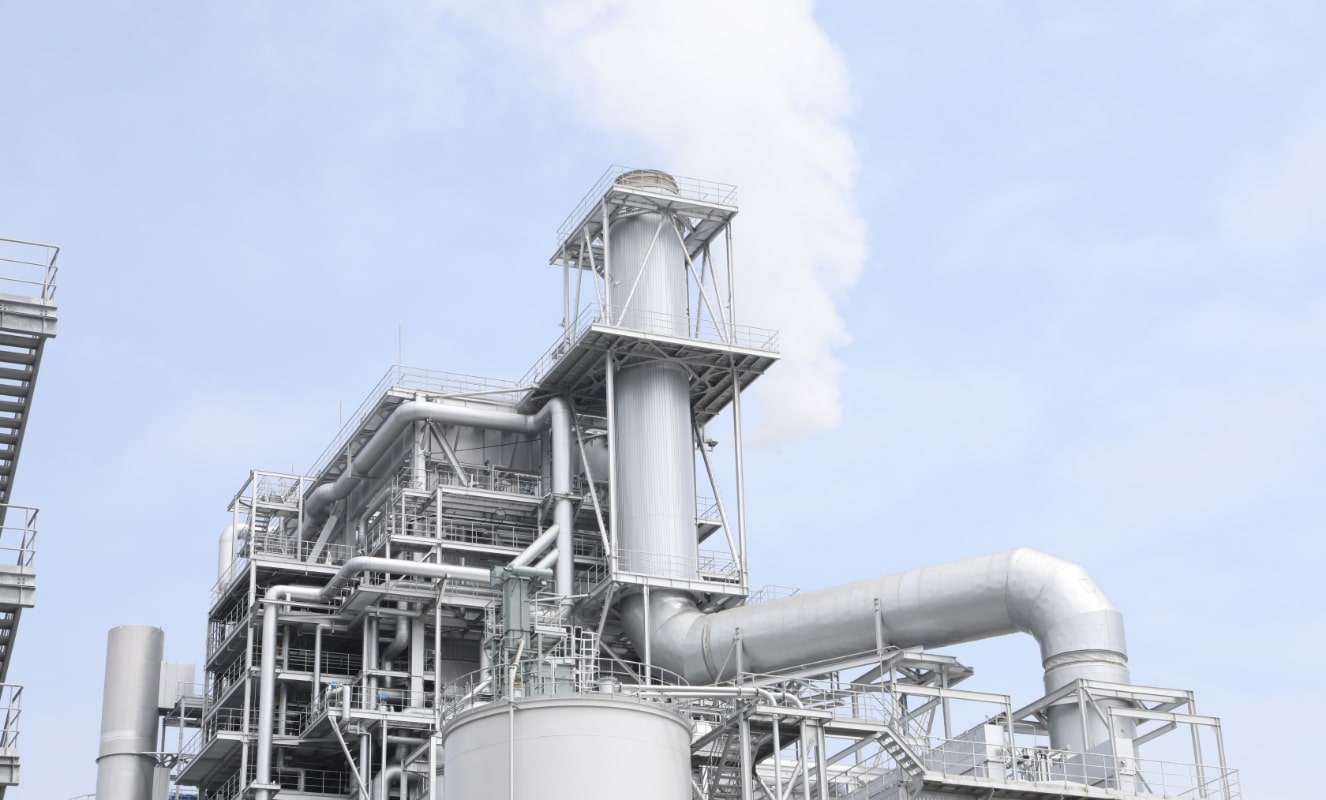
Exhaust tower of Kanda Biomass
-
Safe Wastewater / Effluents
From the perspective of effective use of water resources, RENOVA strives to minimize the amount of water resources used in the construction and operation of its power plants as much as possible, and to return the water resources used to nature in a form with low environmental impact.
For example, in order to prevent the outflow of oil and other waste from power plants into the oceans, we have taken measures such as installing oil-water separation tanks consistently, from the time of initial construction.
Many of RENOVA’s biomass power plants do not employ the usual “water-cooled” method (which uses seawater or industrial water to cool the steam discharged from turbines) but an “air-cooled” method that cools the boiler with air, with almost no use of water.
We believe that this contributes to the effective use of water resources and the elimination of the effects of hot wastewater effluent.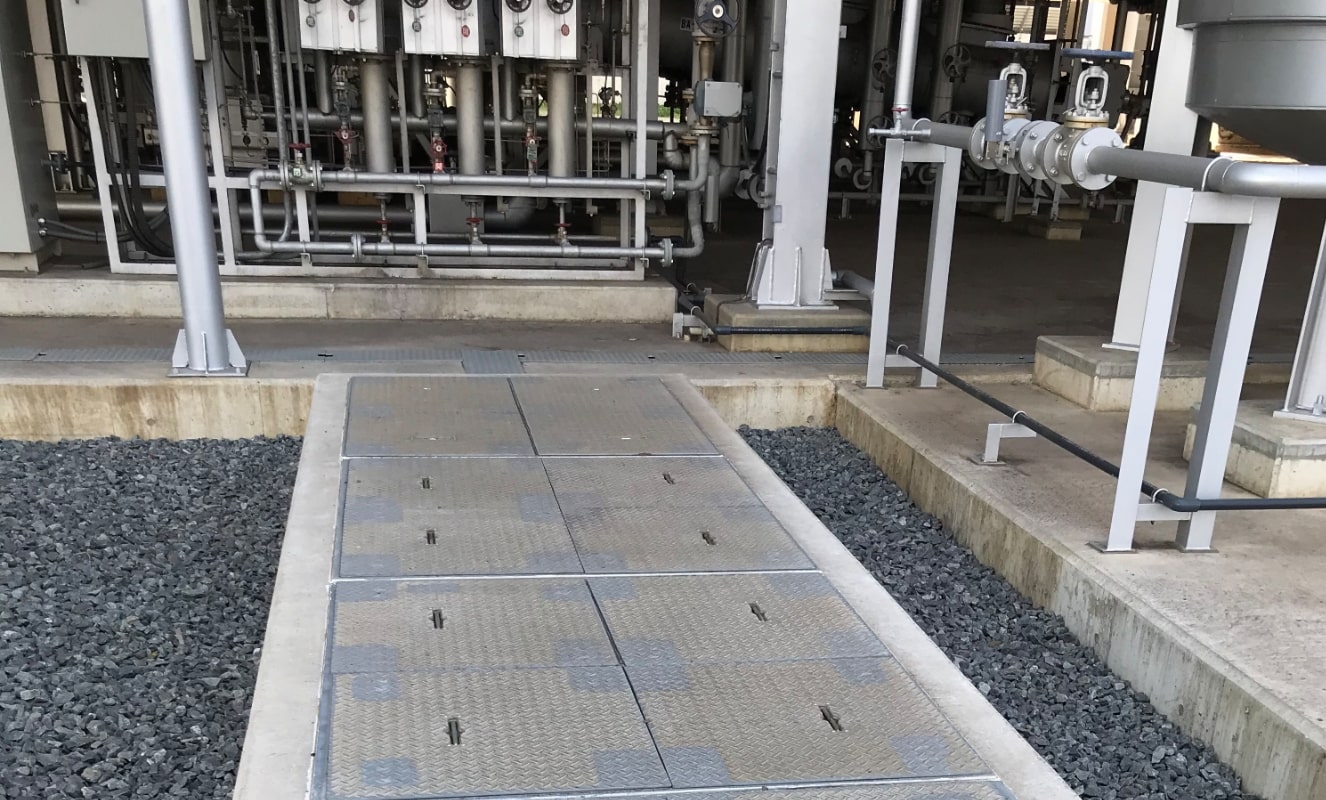
Oil-water separation tanks at Kanda biomass
-
Reduction and Reuse of Industrial Waste
Solar PV minimizes the need for earthworks and reduces the amount of waste such as mud, sand and felled trees at the time of construction.
In addition, the mud, sand and felled trees produced are reused as much as possible at the power plant site.
In biomass power generation, we recycle ash generated by the combustion of biomass fuels.
Akita Biomass Power Plant uses construction waste as a heat source for dryers used in the process of drying biomass fuels such as wood chips before burning them in the boiler. -
Environmental Conservation and Biodiversity at Suppliers
RENOVA believes that consideration for the global and local environment is an issue that should be addressed throughout the entire supply chain. Under its Sustainable Procurement Policy, RENOVA requires its procurement partners (suppliers) to obtain and maintain environment-related permits and licenses, comply with relevant laws and regulations, manage emissions, reduce greenhouse gas emissions, and reuse and recycle resources.
Sustainable Procurement Policy
